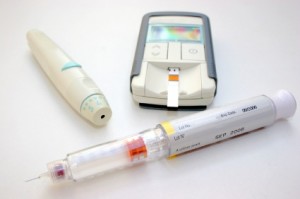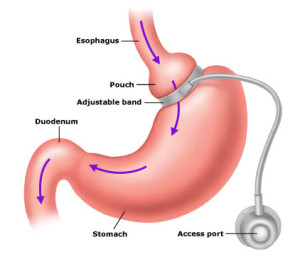April 17, 2014
 In a 1,100-word story on its front page, the New York Times (4/17, A1, Tavernise, Grady, Subscription Publication) reports that research published in The New England Journal of Medicine shows “the first broad national picture of progress against some of the most devastating complications of diabetes, which affects millions of Americans, finding that rates of heart attacks, strokes, kidney failure and amputations fell sharply over the past two decades.” Researchers found that the largest “declines were in the rates of heart attacks and deaths from high blood sugar, which dropped by more than 60 percent from 1990 to 2010, the period studied.” The study’s lead author, Edward W. Gregg, a senior epidemiologist at the CDC, “said researchers used four federal data sets – the National Health Interview Survey, the National Hospital Discharge Survey, the United States Renal Data System, and Vital Statistics – over a 20-year period to give a comprehensive picture of diabetes outcomes.”
In a 1,100-word story on its front page, the New York Times (4/17, A1, Tavernise, Grady, Subscription Publication) reports that research published in The New England Journal of Medicine shows “the first broad national picture of progress against some of the most devastating complications of diabetes, which affects millions of Americans, finding that rates of heart attacks, strokes, kidney failure and amputations fell sharply over the past two decades.” Researchers found that the largest “declines were in the rates of heart attacks and deaths from high blood sugar, which dropped by more than 60 percent from 1990 to 2010, the period studied.” The study’s lead author, Edward W. Gregg, a senior epidemiologist at the CDC, “said researchers used four federal data sets – the National Health Interview Survey, the National Hospital Discharge Survey, the United States Renal Data System, and Vital Statistics – over a 20-year period to give a comprehensive picture of diabetes outcomes.”
[Read more…]
Study: Diabetes-related complications declining
Researchers claim blood test may predict Alzheimer’s
March 10, 2014
 The New York Daily News (3/10, Landau) reports that researchers say they have “developed a revolutionary” blood “test that can predict if someone will develop Alzheimer’s disease.”
The New York Daily News (3/10, Landau) reports that researchers say they have “developed a revolutionary” blood “test that can predict if someone will develop Alzheimer’s disease.”
CNN (3/10, Cohen) reports that according to the study published in the journal Nature Medicine, even “though much work still needs to be done, it is hoped the test will someday be available in doctors’ offices, since the only methods for predicting Alzheimer’s right now, such as PET scans and spinal taps, are expensive, impractical, often unreliable and sometimes risky.” For the study, researchers “drew blood from hundreds of healthy people over age 70 living near” Irvine, CA and Rochester, NY. Five years after the blood draw, 28 of the participants had developed mild cognitive impairment or Alzheimer’s.
[Read more…]
New two-hormone Roche drug shows promise in diabetes, obesity
October 30, 2013
(via www.Reuters.com)
by Ben Hirschler
An experimental drug that mimics the effects of two naturally occurring hormones appears to work significantly better than existing single-hormone medicines against diabetes and obesity, scientists said on Wednesday.
A team of German and U.S.-based researchers said they are using “mother nature’s toolkit” to seek a breakthrough for treating type 2 diabetes and related obesity which is affecting rapidly growing numbers of people in the West and many developing nations.
The new dual-action molecule, which is being developed by Swiss drugmaker Roche, targets receptors for hormones known as GLP-1 and GIP that play a critical role in regulating the body’s metabolism.
Currently approved injectable drugs such as Novo Nordisk’s Victoza and Byetta from Bristol-Myers Squibb and AstraZeneca mimic only GLP-1.
[Read more…]
 NBC Nightly News (3/31, story 10, 2:55, Williams) reported that “researchers have found that weight loss surgery for” patients with type 2 diabetes “can be more effective than taking medication in beating this disease.”
NBC Nightly News (3/31, story 10, 2:55, Williams) reported that “researchers have found that weight loss surgery for” patients with type 2 diabetes “can be more effective than taking medication in beating this disease.”